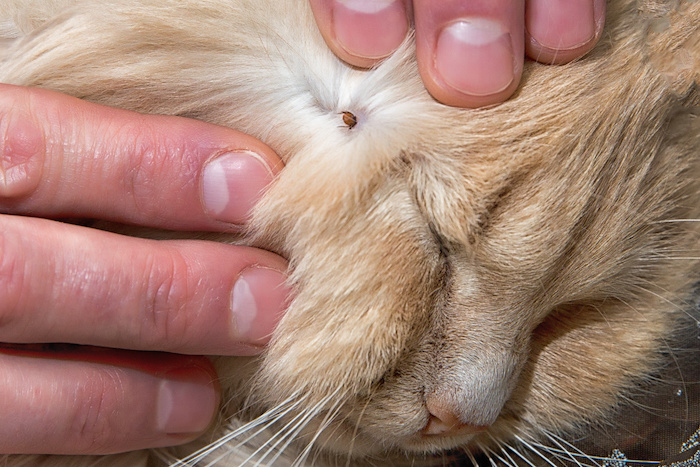It’s a nightmare for cat lovers to see their beloved cats suffering from ticks and fleas. This is due to the fact that these small parasites could bring diseases and health complications that could badly affect your cat. So, as their guardian, you’re supposed to protect your furry buddies from fleas and ticks before they end up getting sick.
However, even when your pets are mostly indoor all the time, they may still be in contact with these little creatures. Truth is, they could get it from anywhere. It could be from the people who visit your home, other furry animals they interact with, and even your clothing could cause them. Certainly, the best way to address the problem is to spot it immediately. Give your cat the veterinary care they need and provide them with accessories to get rid of ticks and fleas, such as a DEWELPRO which is believed to offer a hypoallergenic and eco-friendly solution.

How Ticks And Fleas Affect Your Cat
If you think fleas and ticks will only cause itchiness and irritation on your cat’s skin, think again. Yes, these bugs can cause scabs and sores but that’s not all there is to it. To give you more information, here are some health issues and complications your cat may suffer from because of annoying ticks and fleas:
- Flea Allergy Dermatitis (FAD)
Flea bites are itchy enough, but they can also cause other health problems, such as FAD. If your cat happens to be allergic to flea saliva, this condition may happen to your cat. The substances present in their saliva could trigger an immune response as they penetrate the cat’s skin.
As a result, an intense skin irritation might happen and it could potentially spread across the skin and not just where the bites are located. Your pet may also experience hair loss on different parts of the body, including the inner thighs, abdomen, and around the tail.
- Anemia
One health complication your cat could get from ticks and fleas is anemia. When there’s already a massive infestation of parasites feeding on your fur baby, they can develop anemia or a condition wherein their blood test indicates a lower red blood cell count. Symptoms of anemia in cats include lethargy, pale gums, weakness, and rapid breathing.
Anemia is a serious medical condition that needs to be addressed immediately. If you suspect your cat is anemic, consult a veterinarian immediately before it leads to a more serious illness such as autoimmune disease, leukemia, and chronic liver or kidney disease.

- Lyme Disease
Lyme disease is a notorious and probably the most popular disease both animals and humans alike can get from parasites like ticks. It’s caused by a bacteria called Borrelia Burgdorferi. The transmission of the disease occurs two or three days after the ticks have begun feeding on your pet.
Removing a tick from cat skin
Some of the signs your cat may already have Lyme disease are:
- Difficulty breathing
- Lameness
- Sluggishness
- Fever
- Lack of appetite
- Sensitivity to touch
Although this disease rarely occurs in felines, it’s still possible for them to carry the tick that spreads Lyme, which can be transferred to you. Humans who get infected with Lyme disease may experience symptoms such as swelling, neck stiffness, joint pain, facial palsy, rashes, and severe headache.
- Tapeworms
Cats can get tapeworms from fleas. The infection usually happens during your pet’s grooming sessions. Another way cats get tapeworms is when they swallow even a single flea with tapeworms in it. These intestinal parasites have hook-like and sharp mouthparts they use to attach to your furry friend’s intestines. From there, they thrive and steal the nutrients your cat is supposed to get.
The easiest way to tell if your cat has tapeworms is to look at their bedding, anus area, and feces. The worms would usually come out of the animal’s anus while they’re relaxing or sleeping. They may look like rice grains but those are actually eggs released by the tapeworms.

Conclusion
Health complications may arise if you fail to notice your cat is already being infested by ticks and fleas. They can suffer from flea allergy dermatitis, Lyme disease, anemia, and tapeworms. Not to mention the severe itching and skin irritation that would make it hard for your cats to sleep at night.
This is why checking them from time to time is necessary. In addition, take them to the vet regularly and check their bed or sleeping area frequently. You can never be too sure when it comes to parasites like ticks and fleas. Get rid of them immediately before they start causing more harm and serious medical issues not just to your cat, but to you, as well.
